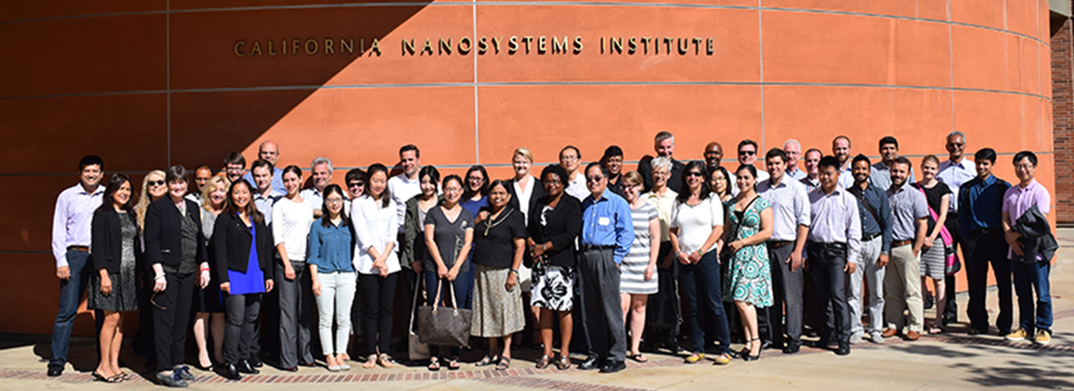Background
Our healthcare challenges are very complex and do not fit neatly into existing scientific disciplines; solving them requires the combined expertise and efforts of many scientific and technical disciplines. The NIH mHealth Training Institute (mHTI) was created to serve as an incubator for developing transdisciplinary scientists capable of co-creating mHealth solutions for “wicked” healthcare problems. Funded through a competitive renewal (OBSSR/ODP/NIDA: 5 R25 DAO38167), Version 2.0 of the mHTI builds on the experiences of earlier mHTIs and the feedback of its graduates. The annual institute identifies academic unicorns - from disciplines ranging from medicine and psychology to computer science and biomedical engineering - with an aptitude for interdisciplinarity and a passion for translational research with societal impact. Through a week-long workshop, the mHTI helps the selected scholars develop a shared vocabulary and conceptual framework, acquire core domain expertise in latest mHealth technologies and methodologies, and get practical experience in cross-disciplinary mHealth innovation. A major focus is the advancement of team science skills and the soft skills required to develop them into influential nodes in an expanding collaborative network of catalyst mHealth researchers linked to national funding systems. Beyond the NIH, the mHTI is supported by the generous contributions of a core group of faculty thought-leaders with extensive teaching priors and a deep commitment to educating the next generation of diverse mHealth scientists. An anchoring logic model for the educational activities and independent evaluations by UCLA’s Center for Research on Evaluation, Standards, and Student Testing (CRESST) ensures that the educational program remains cutting-edge and impactful within the rapidly transforming healthcare landscape. Alumni of previous mHTIs are actively transforming the mHealth research programs on their home campuses and many have become trailblazers integrating mHealth into healthcare delivery.
Vivek Shetty
Program Director
Program Philosophy & Structure
The mHTI 2.0 training is grounded in a team science model that emphasizes both information transaction and relationship development in the advancement of transdisciplinary mHealth teams capable of impactful healthcare solutions. To that end, the institute functions as a connector/incubator/facilitator where participants feel comfortable borrowing ideas, technologies and conceptual frameworks from one another and develop trusting, collaborative relationships across disciplinary boundaries. The blended learning approach of the immersive mHTI combines transdisciplinary team-based projects with didactic deep-dives into essential domains. Selected scholars are assembled into multidisciplinary teams and tasked with identifying a health problem of common interest and developing a practical mHealth solution that transcends disciplinary confines. Each team is assigned two experienced faculty mentors who utilize “team science” best practices to enable and strengthen team dynamics, facilitate communication and foster trust. The didactic core includes a continuum of mHealth themes comprising health behavior change processes and models, biosensing, digital biomarkers, human centered design, advanced research methodologies and machine learning. Emphasis is placed on providing the scholars with practical mHealth strategies and tools as well as the soft skills essential from transdisciplinary collaborations and academic advancement. Formal and informal social events help promote dialogue and dense social connections among the scholars. Scholars are polled at various times and the faculty mix is adjusted each year to inject fresh perspectives and cutting-edge research insights. The training program is supported by a web-enabled infrastructure (mHealthHUB) that facilitates ongoing dissemination, e-mentoring and collaborations beyond the mHTI amongst the geographically dispersed trainees and faculty.
Impact
Over the past eight mHTIs, about 55 institutions from across the United States have sent 192 faculty and future faculty for training. The overwhelming majority of surveyed alumni report that the mHTI training has greatly increased their core competencies in cutting edge mHealth methodologies and technologies, deepened their understanding and appreciation of diverse disciplinary perspectives, increased their confidence and self-efficacy to initiate and sustain transdisciplinary mHealth-related collaborations, and greatly expanded the size and disciplinary breadth of their professional network. Many of the team projects developed during the institute have resulted in NIH/NSF-funded projects. Importantly, the dense social connections and friendships developed during the institute have resulted in numerous, productive collaborations amongst geographically-dispersed graduates. The mHTI is widely acknowledged to be the premier national incubator of its type and its perceived impact manifest in the growing number of applicants each year. In 2020, the mHTI 2.0 began widening its educational reach and impact by actively recruiting a cohort of international mHealth researchers.
Participant Testimonials
- “Coming into the institute, I felt very isolated at my home institution. I had very few collaborators in mHealth and very few mentors who had the knowledge I sought. After the institute, my eyes have been opened. […] Suddenly the research that I felt was impossible seems very possible.”
- “The interactions with the mentors was the best part of the institute for me. They answered many of the pressing questions I had as a young researcher starting their career. The presentations about funding, building collaborations with folks of different backgrounds, and finding and holding onto positions were extremely helpful.”
- “The ability to interact with different skill-sets but similar goals was invaluable. I have come to appreciate the diversity of backgrounds in the field of mHealth, and the necessity of different disciplines to form a successful mHealth team. In addition, the daily lectures were excellent - they covered a broad array of topics, but with the specificity that made them still useful.”
- “The exercise of looking at the problem from different angles and through different disciplinary lenses then bringing everything together under a cohesive problem statement while highlighting the expertise of the team to address the problem."
- “In all the conversations I have with scholars, I heard that this was a really valuable experience for them, and several of them have told me that this was one of the most valuable things they have done professionally in their careers.”
- "It was a great opportunity to learn from the experts, make new friends, and enjoy brainstorming novel research ideas with cutting-edge mHealth technologies. I would highly recommend ealy career researchers working in mHealth to apply to this prestigious and highly competitive training program in the future."
